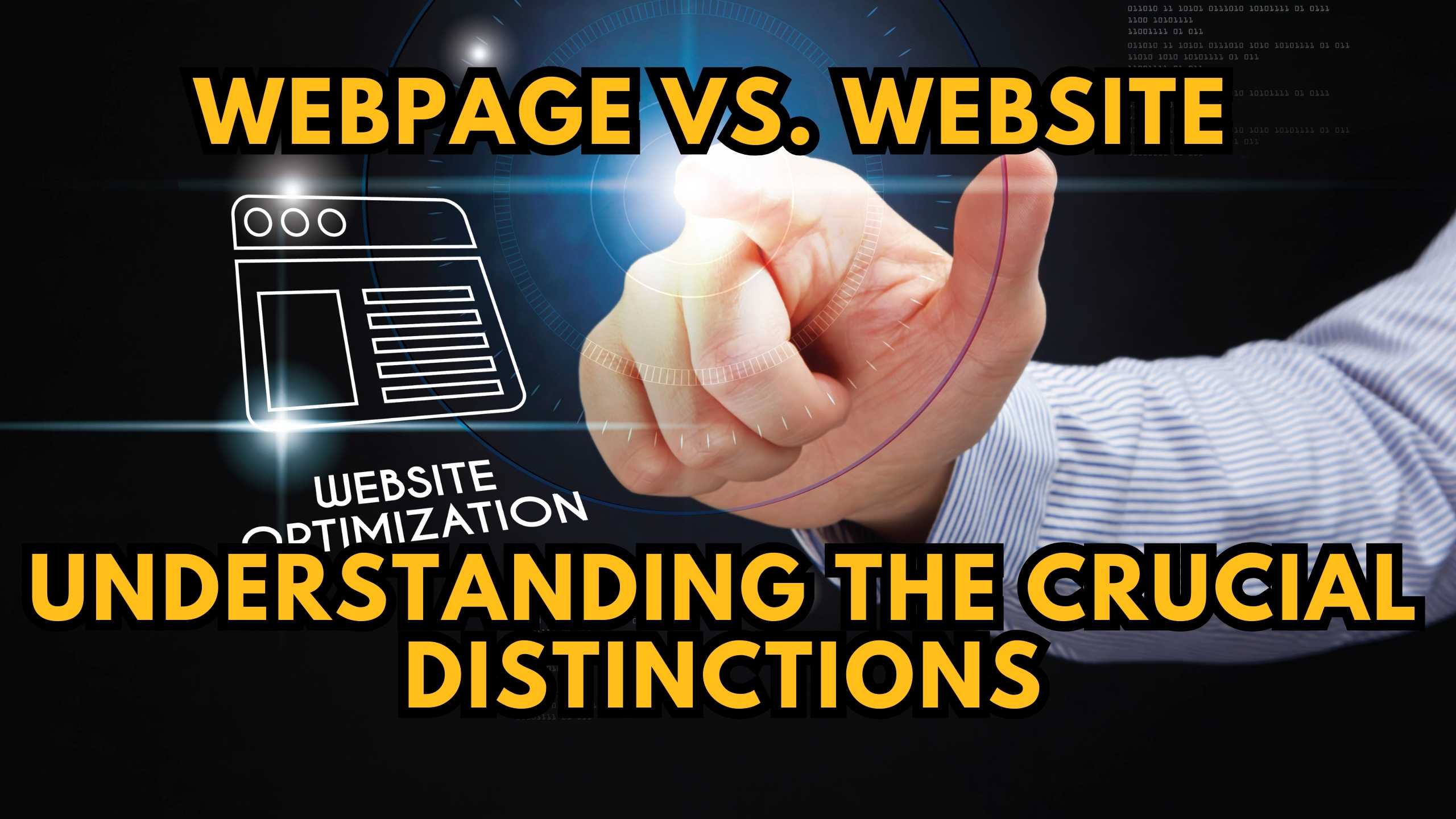Webpage vs. Website: Understanding the Crucial Distinctions
- WebOps Platforms Bug Tracking & Feedback Software Web Development & Design


Webpage vs. Website: Understanding the Crucial Distinctions
In the expansive realm of the internet, where information and digital content abound, distinguishing between a “webpage” and a “website” is imperative for users and creators alike. These terms, often used interchangeably, represent distinct entities that play crucial roles in shaping the online experience. Let’s delve deeper into the nuanced differences between a webpage and a website, shedding light on their individual characteristics and significance.
1. Defining a Webpage
A webpage is a standalone document accessible through a web browser, representing a specific unit of content. This content could range from a single blog post or article to a product page or any other individual piece of information. Webpages, in essence, serve as the fundamental building blocks that collectively constitute a website, contributing to its overall structure and thematic content.
2. Understanding a Website
A website, on the other hand, extends beyond a singular document, encompassing a collection of interconnected webpages residing under a shared domain. It serves as a holistic platform that provides a comprehensive user experience by offering a diverse array of content, services, or products. Websites often include a homepage, navigation menus, and various interconnected pages, creating a cohesive digital presence.
3. Importance of Clarity for Users
Clarity on the webpage vs. website distinction is crucial for users navigating the internet, ensuring a seamless online experience. When users search for information, search engines direct them to specific webpages containing the relevant content. Understanding the difference streamlines user navigation, contributing to a more user-friendly online experience.
4. User Interaction and Navigation
Websites facilitate seamless user interaction by offering intuitive navigation features that allow users to move effortlessly between different webpages. Platforms like WordPress, a widely-used content management system, not only empower users to create individual webpages but also provide tools for managing and organizing these pages into a cohesive website structure.
5. SEO Considerations
From an SEO (Search Engine Optimization) perspective, recognizing the distinction between webpages and websites is crucial for effective online visibility. Search engines index individual webpages, considering their content and relevance to user queries. However, they also evaluate websites as a whole, taking into account factors like site structure, navigation, and overall user experience. Ahrefs, a comprehensive SEO tool, plays a pivotal role in optimizing both webpages and websites, ensuring higher visibility in search engine results through detailed analysis and insights.
Recommended SaaS Products:
- WordPress: A versatile content management system that empowers users to create and manage webpages with ease, offering a range of customizable features for effective website development.
- Ahrefs: A comprehensive SEO tool providing detailed insights into webpage and website performance, assisting in optimizing content for higher visibility in search engine results.
- Canva: A graphic design platform that simplifies the creation of visual content for webpages, enhancing the overall aesthetics and user engagement.
- Mailchimp: An email marketing platform that facilitates communication with website visitors, nurturing user relationships and driving engagement.
- Notion: A collaboration and productivity tool that enables seamless coordination in creating and managing website content, ensuring efficient teamwork.
- Hotjar: A user analytics and feedback tool that provides valuable insights into user behavior on webpages, aiding in website optimization.
Conclusion
In conclusion, the nuanced differences between a webpage and a website are foundational for navigating the dynamic digital landscape. Understanding their individual roles, user interactions, and SEO implications contributes to a more informed and strategic approach to creating and managing an online presence.
Revolutionize Your Web Presence with Subscribed.fyi!
Ready to take your web presence to the next level? Subscribed.fyi offers an all-in-one solution for managing your SaaS stack, helping you unlock exclusive deals and streamline your subscription management. Sign up for free and discover the secret to navigating the unique dynamics of SaaS tools while saving big on essential tools!
Relevant Links:








